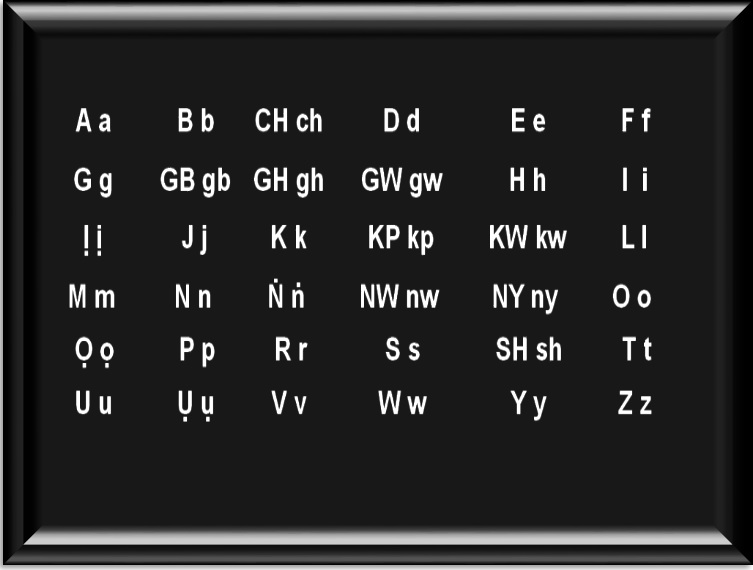The first thing about learning a language would be the alphabets of such a language. Some alphabets of some languages are in many ways unique and in Igbo language’s own case, it is no exception. Even though, Igbo language alphabet may exceed some well-known language characters as some are 26 or more. In Igbo language, the characters are 36 in number.
See below:

In Igbo alphabets:
[ a ] sounds like annual, apple
[ b ] sounds like bee, become, behave
[ ch ] sounds like church, chapel, chalk
[ d ] sounds like deed, dig, diego
[ e ] sounds like ate, egg, effort
[ f ] sounds like field, fish, finish
[ g ] sounds like gear, girl, give
[ gb ] sounds like Igbo, fargboo
[ gh ] sounds like neighbour, cough, ghetto,
[ gw ] sounds like gwent, quash,
[ h ] sounds like hen, hair, hear
[ i ] sounds like ear, either, eaglet
[ ị ] sounds like information, ignorant, ignition
[ j ] sounds like jail, jam, jack
[ k ] sounds like caught, colour, clutch, cough, kernel
[ kp ] sounds like repute, catapult, markup
[ kw ] sounds like quote, quick, question
[ l ] sounds like leg, late, live
[ m ] sounds like more, mad, male
[ n ] sounds like no, note, nil
[ ń ] sounds like rung, gong, song
[ nw ] sounds like went, wench, wept
[ ny ] sounds like pony, funny, Ronny
[ o ] sounds like orange, owe, oat
[ ọ ] sounds like Austin, augment, automatic
[ p ] sounds like pay, peas, pocket
[ r ] sounds like report, reproduce, research
[ s ] sounds like send, said, sue
[ sh ] sounds like ship, sure, shall
[ t ] sounds like tea, till, tee, thief
[ u ] sounds like push, shoe, spoon, woof
[ ụ ] sounds like talk, pork, rock, pouf
[ v ] sounds like victor, Vicky, vehicle
[ w ] sounds like welt, way, width
[ y ] sounds like year, yell, yeast
[ z ] sounds like zero, zoo, zone